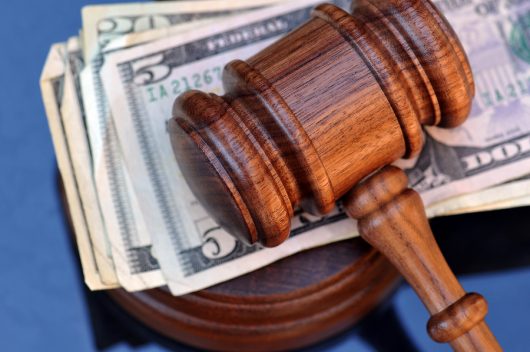In January, New York State bail laws came under scrutiny when Governor Andrew Cuomo joined a growing chorus of voices calling for the end of bail as we know it. As part of a larger package of criminal-justice reforms, Cuomo proposed eliminating the cash bail requirement for those in the state facing misdemeanors and nonviolent felony charges.
“For far too long, our antiquated criminal justice system has created a two-tier system where outcomes depend purely on economic status—undermining the bedrock principle that one is innocent until proven guilty,” Cuomo said.
Divided Opinions
Critics of the New York State bail laws contend that cash bail requirements are unfair and may even violate defendants’ constitutional rights, both because they have not yet been convicted of crimes, and because the system is rigged in favor of those with the means to pay their way to freedom.
Proponents of the current New York State bail laws argue that it is necessary to ensure that defendants who might be flight risks will show up in court. Among those who oppose Cuomo’s proposed reforms are many district attorneys and police chiefs, along with, not surprisingly, for-profit bail bond companies. In addition, many criminal defense attorneys, including those at LaMarche Safranko Law, oppose the proposed bail changes because the posting of bail, and the potential of losing something, place an onus on a criminal defendant not only to appear in court, but to remain in contact with their lawyer.
Under New York Criminal Procedure Law, when an order of bail is a matter of the judge’s discretion, among the factors that should be weighed are the principal’s “character, reputation, habits, and mental condition”; employment and financial resources; family ties and length of residence in the community; criminal record; and previous record in responding to court appearances.
In lieu of bail, Cuomo’s reforms would direct defendants to be released on their own recognizance or under non-monetary conditions, including restrictions on travel, a requirement to check-in regularly with a pretrial services agency, and a requirement to turn in any guns in the defendant’s possession. Currently, these release opportunities are frequently used outside of the New York City area as an alternative to the imposition of bail.
Cuomo’s proposal would allow a judge to jail someone for five days in specific types of offenses: domestic violence, “serious violence,” “witness intimidation,” willfully failing to appear in court and committing a new crime while out on release. After the five-day detention period, defendants would be entitled to a hearing to determine whether they should be released with non-monetary conditions pending trial.
Bail Reform: Not In Budget, But Not Forgotten
When Cuomo released his proposed budget at the end of March, however, advocates were disappointed to find that the criminal-justice reforms—including the bail proposal—were not included. That may be because they would have been blocked from a floor vote by the Republican-controlled Senate; a situation that has since changed. Well, sort of.
Democrats won two special elections in late April, giving them a theoretical 32-31 advantage in Senate seats. In practice, however, one of those seats belongs to Simcha Felder, a Brooklyn Democrat who has announced he will continue to caucus with Republicans, with whom he sides on many of his constituents’ issues.
Cuomo—who believes there are Republicans who will support bail reform if it comes to the floor—wrote an open letter to Felder asking him to “join the 31 other registered Democrats, so we can enact meaningful legislation.” Cuomo said that keeping it from a vote does a disservice to constituents who don’t know where their legislators stand on the issue.
If you are facing a criminal trial, LaMarche Safranko Law can help. Call us at (518) 982-0770 or visit us online.

